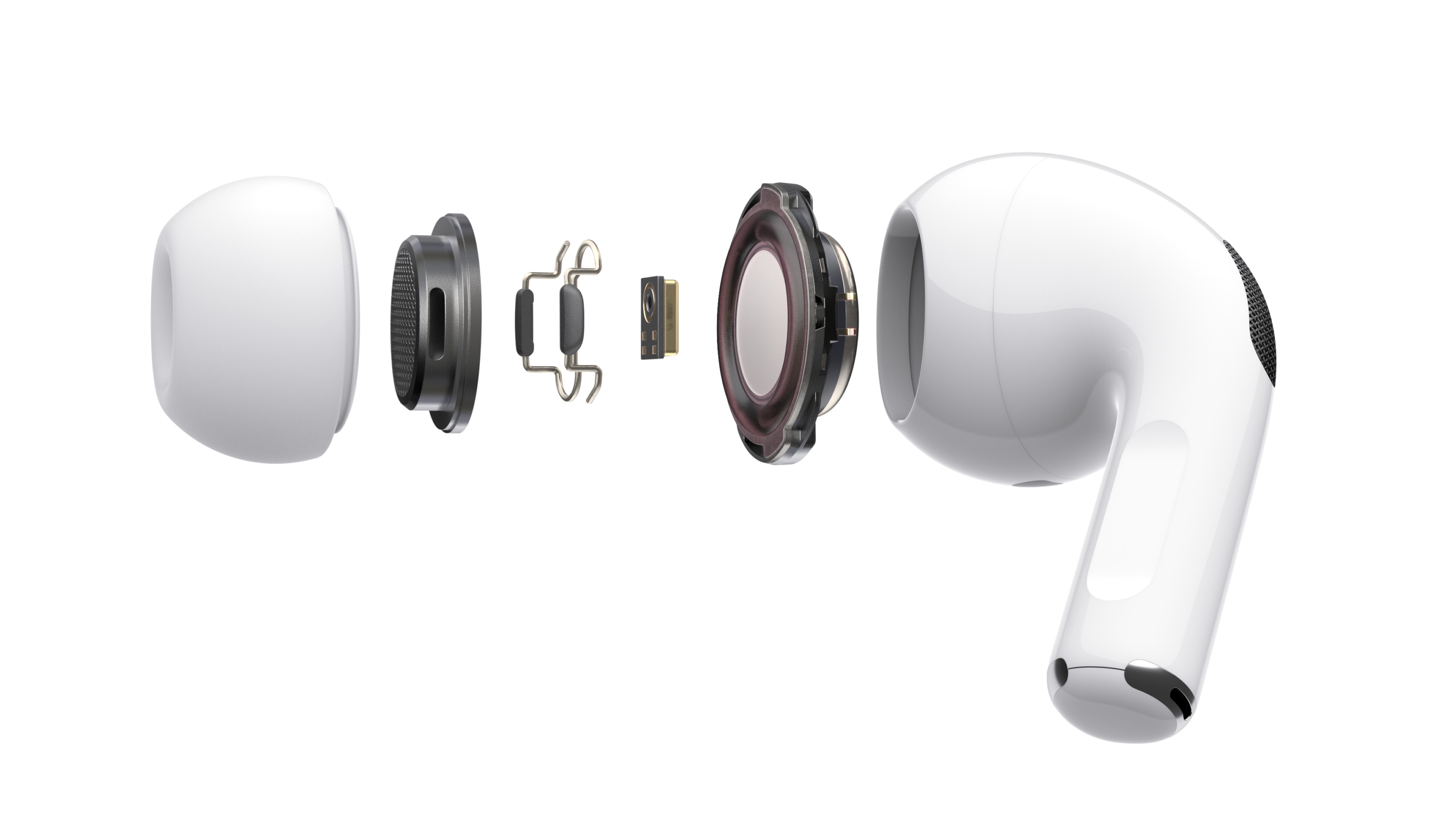Why AirPods Pro 2's lossless audio might not beat AirPods Max for sound quality
AirPods Pro 2 may be the first to support lossless music, but the dynamic range of AirPods Max means they might still be the king


With Apple AirPods Pro 2 expected to be released this year, rumours and leaks are starting to appear, and one of the hottest claims is that they'll be the first AirPods to support lossless audio – the latest claim for this is an investor's note from analyst Ming-Chi Kuo, seen by MacRumors.
This is only more fuel to the fire, with another big hint having recently come a What Hi-Fi? interview with Apple's VP of Acoustics, Gary Geaves. There, Geaves said: "It’s fair to say that we would like more bandwidth and… I’ll stop right there. We would like more bandwidth."
This raises an interesting question: will the new AirPods Pro 2 offer higher quality music playback than the almighty (and expensive) AirPods Max, thanks to being able to stream hi-res audio files? The answer is, frustratingly: maybe. It depends on a few factors, so here's what you need to know.
In 2021, Apple added higher-quality 'lossless' music as an option within the Apple Music app, but so far there's no way to listen to the higher-fidelity versions of these songs on Apple's own headphones. At the moment, all AirPods models – including the high-end AirPods Max, current AirPods Pro and the new AirPods 3rd Gen – only support standard Bluetooth wireless 'codecs', which can't handle all the extra information in lossless music files – this is the lack of "bandwidth" that Geaves lamented. The audio gets converted to a lower-resolution version, which is what you hear on the AirPods.
The usual way for Bluetooth headphones to support lossless audio is by using the aptX codec, but Apple is unlikely to include this: it requires using technology from Apple's frenemy Qualcomm (which competes with Apple by making chips for the best Android phones, but also makes things like the 5G modem in the iPhone 13).
However, companies can create their own spin on high-quality streaming over Bluetooth. For evidence, just look at LDAC; this was created by Sony, and offers three times the bandwidth of regular Bluetooth. The downside of LDAC is that support for it is hidden behind a developer menu on most Android phones – it's not widely used, or even known about.
But that's not a problem Apple has: if it invents its own high-bandwidth Bluetooth technology equivalent to LDAC, it will presumably add support to tons of recent iPhones at the same time, probably in iOS 16, so most people will be able to take advantage of the extra quality from their AirPods Pro 2.
Get all the latest news, reviews, deals and buying guides on gorgeous tech, home and active products from the T3 experts
Get to the AirPods Max already, jeez
If we assume that whatever hi-res Bluetooth technology Apple uses will be exclusive to the AirPods Pro 2 (initially), it'll mean they have better-sounding audio than the high-end AirPods Max, since those are limited to lower-resolution music streaming, right?
Well, not necessarily. The detail of the music files isn't everything: the quality of the speaker driver is crucial. The AirPods Max have a simply phenomenal 40mm driver that's incredibly dynamic (meaning it can move incredibly nimbly, so it can produce more detail), while the current AirPods Pro are said to include an 11mm driver (Apple hasn't detailed the exact size) that's extremely dynamic, but simply doesn't match what the AirPods Max can do. Juicing up the detail in tracks for the AirPods Pro 2 won't make them better than the Max on its own.
Think of it this way: the AirPods Pro 2 with lossless audio are like putting Lewis Hamilton into a Mercedes S Class and setting him loose around a racetrack. That's a damn nice car, and he'll really make the most of it, no question. It'd be very impressive.
But the AirPods Max with regular Bluetooth are like putting an average driver into an F1 car on the same track. Their standard of driving might not be great, and they might not be getting the maximum performance out of the car, but they could beat Hamilton's time in the Merc simply because it can do so much more.
Here's another factor: if you're using noise-cancelling, then you're adding processing that can affect how well the details of lossless music come through. How well AirPods Pro 2 handle this will be a big factor as to whether lossless audio comes across as much of an upgrade at all.
So while I'm excited to see what the AirPods Pro 2 can do – I expect a big upgrade in sound quality even without lossless audio support, based on what an improvement the AirPods 3rd Gen are over the previous version – when it comes to lossless audio, what I really want is for Hamilton to get into the F1 car…

Matt is T3's former AV and Smart Home Editor (UK), master of all things audiovisual, overseeing our TV, speakers and headphones coverage. He also covered smart home products and large appliances, as well as our toys and games articles. He's can explain both what Dolby Vision IQ is and why the Lego you're building doesn't fit together the way the instructions say, so is truly invaluable. Matt has worked for tech publications for over 10 years, in print and online, including running T3's print magazine and launching its most recent redesign. He's also contributed to a huge number of tech and gaming titles over the years. Say hello if you see him roaming the halls at CES, IFA or Toy Fair. Matt now works for our sister title TechRadar.